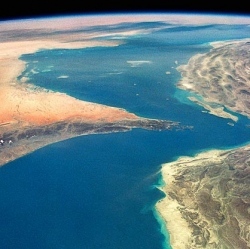
This week, I can predict with a high degree of accuracy that more than 50,000 car accidents will occur in the U.S., over 500 of which will involve fatalities. Last week was no different. Is social media alive with discussions on the future of the automotive industry due to these incidents?
Have the “Big Three” seen major losses in stock prices? Are people now afraid to get into their cars because of this? The answer is a resounding no. So, why is it when something happens in the aerospace industry, private or public, we get all up in arms about it? Yes, space travel is a risky business and extremely difficult. But, in the entire history of human space travel, there have only been 18 in-flight fatalities, as compared to the more than 3 million car related deaths since the creation of the automobile.
A few failures are not going to stop private space flight, just as a few crashes are not going to stop the automobile industry. There may be some bumps in the road along the way, but we should be ashamed if mishaps cause us to run away from a challenge. Where would we be if the Wright brothers decided not to pursue aviation because Otto Lilienthal, a pioneer of aviation, was killed in a glider accident? Failure is a necessary part of great success.
In our efforts to travel to the moon during the golden age of space travel, there were 55 mission failures and only 41 successes. One of the most famous innovators of all times, Thomas Edison, knew that failure was intimately tied to success. When developing the electric light bulb, he reportedly failed over 10,000 times before getting it right.
Although I would not be so bold as to put words in other people’s mouths, I think its safe to say that today’s visionary leaders of private spaceflight such as Elon Musk and Richard Branson fully understand the risks involved and will not be deterred by failures. Nor should any of us. Of course, it would be a huge mistake not to understand the causes of these failures and learn how to prevent them in the future.
Like it or not, modern life depends on spaceflight. We rely heavily on global communication, weather prediction, and GPS navigation, each of which is enabled by assets in space. The exploration of space opens our minds to new ways of thinking and solving problems.
NASA has counted more than 1,800 spinoff technologies that have enhanced many aspects of our daily lives including health and medicine, transportation, public safety, consumer goods, energy, the environment, information technology, and industrial productivity. There is clearly a need in our society for a strong space program. Private spaceflight companies are capitalizing on this need and taking us to the next stage in the evolution of space exploration.
